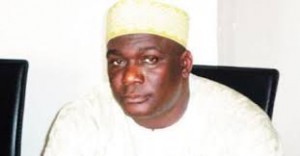
Judiciary workers organised in the Judiciary Staff Union of Nigeria (JUSUN) are still on strike in 15 states of the federation. The union insists that it is committed to ensuring the full autonomy of the Judiciary sector. The judiciary workers in the federal courts and in each of the 36 states were on strike in July last year and again from the beginning of January this year.
The strike is over the independence of the judiciary and the implementation of the 1999 Constitution that requires the judiciary to receive its funding direct from the Federation Account (where all the oil money should be collected). Agreements have been made at the Federal level and with a number of states, but in15 states the strikes are continuing.
In January 2014, the Federal High Court ordered the Accountant General of the Federation to deduct monies intended for the judiciary from the Federation Account and to pay such sums to the National Judicial Council (NJC) for onward transmission to the Chief Judge in each state. Since then judiciary workers at the Federal and state levels have been struggling for this judgement to be implemented.
In Edo State, for example, the judiciary workers held a protest in mid-March and marched through the centre of Benin City to demonstrate their determination to continue their strike. The previous day the local JUSUN president, Uyi Ogieriakhi had met with the governor of the state. However, the governor had expressed his opposition to the strike and his determination not to provide greater independence for the state judiciary.
The judiciary workers are equally determined to continue their fight for good governance and independence of the courts. In an exclusive interview with Socialist Worker, Uyi said that their demands were “sacrosanct in terms of good governance”. At the protest he said the strike would continue, even for two years, and was loudly cheered by JUSUN members.








